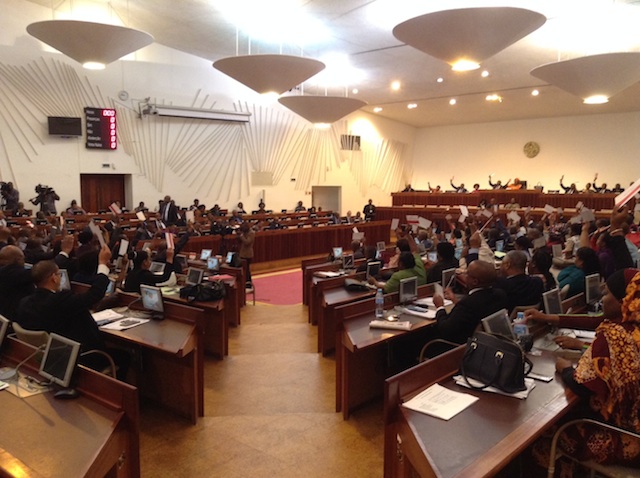Mozambique: Members of the Council of State are tried by the Supreme Court
Revised Penal Code punishes violation of PES and State Budget rules with imprisonment – Mozambique

Picture: A Verdade
Members of the VIII Legislature have approved a revision of the 2014 Penal Code which will in future specifically punish civil servants who violate Economic and Social Plan (PES) rules and those concerning the State Budget in Mozambique for public sector corruption and related crimes with prison sentences of two to eight years in prison.
The review specifically targets civil servants in the customs, traffic, migration, civil and criminal identification services.
On 26 July, the Assembly of the Republic approved the revision of the Penal Code, which, among several innovations, now specifically sanctions “the civil servant who, by himself or by an interposed person, with his consent or ratification, requests or accepts, to himself or to a third party any undue advantage or its promise, to any act or omission contrary to the duty of office, even if prior to that request or acceptance, is punishable by imprisonment of one to eight years and fine up to two years.”

Public servants who are most often found to be corrupt in Mozambique have received a specific sanction: “The 1 to 8-year prison sentence is applied to the civil servant assigned to the customs, traffic, migration, civil and criminal identification which, by himself or interposed a person with his or her knowledge or ratification, to solicit or receive money or a promise of money or any patrimonial or non-patrimonial advantage to, in respect of his or her office, practice or cease to perform the act.”
It was also clarified who should be considered a civil servant and, clearly living up to the popular saying “House stolen, locks in the door”, the Penal Code now punishes violation of the rules of the Economic and Social Plan as well as those concerning the State Budget.
“The civil servant who, by virtue of his position, is responsible for complying with the Laws of the Plan and of the Budget and, voluntarily, breaks them, is punished with imprisonment from 2 to 8 years, if more serious penalty does not fit whenever: contracts or grants a loan or authorises state endorsement; carries out or orders a financial transaction, active and passive, with direct or indirect implication in the Plan and Budget; authorises or promotes a treasury operation which raises public indebtedness or budget alteration,” the Penal Code now says.
By Adérito Caldeira












Leave a Reply
Be the First to Comment!
You must be logged in to post a comment.
You must be logged in to post a comment.